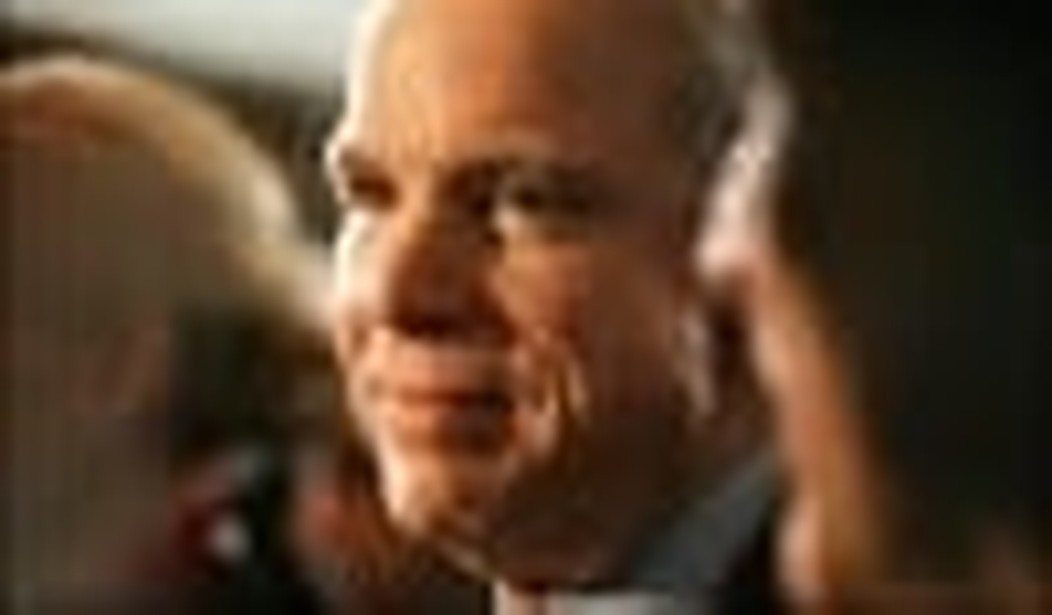The other day I saw a “got ethics?” bumper sticker. There was no referent; only by examining context could I get the gist. The sticker was nestled among a number of strident political slogans. It seemed a member of the “outrage” family in the taxonomy of political placards. Outrage at . . . well, it was not entirely clear.
I could not help but think about that vague bumper sticker as I read the New York Times‘ equally vague article about Senator John McCain’s ethics. The piece has succeeded in doing something unusual: it appears to have united the Left and Right camps of talk show guests as well as the blogosphere. Wow!
I like to get my blood pressure up before my granola as much as the next guy, so I read with anticipation. But I really had a hard time understanding the story, let alone grasping the reason behind the narrative tone of outrage that permeated it.
Let me see if I get it. Back at the end of the 1990’s, when Senator John McCain was running for president, there was this lobbyist. She was around a lot. She was pretty. She bragged to her colleagues about her connections with the Senator. The Senator made moves in favor of the lobbyist’s clients, but also sometimes voted against their interests. The clients gave the Senator campaign contributions and perks. They let him ride in their corporate jet. The Senator’s staff worried about how it all looked. They wanted the pretty lobbyist gone. They met with the lobbyist to tell her to cool it, which made her mad. Then the issue went away, eclipsed by other day-to-day realities of running for president. Or, as the article says, “their concerns receded in the heat of the campaign.” The Senator’s campaign denies any romantic attachment, improper relationship, or special favors to the clients.
This story, if you believe the media-insider columns, has been sat on by The Grey Lady for months — and one of the reporters is rumored to have left the paper in part because the bombshell was languishing so long before seeing light of day.
Around the same time the lobbyist was evidently causing fits among the Senator’s campaign staff, I worked for a think tank that had to do with ethics. I would sometimes make presentations on ethical decision-making. You’ll remember how charged the political environment was at the time. Invariably, someone would sidle up to me during a break and say, intimately, “I am so glad you are doing this. Ethics is so important. Politics is so corrupt.”
The speaker was always dead-earnest, zealous even. But, oddly, it was impossible to predict beforehand the political stripe of the person who would approach me. It was community activists as often as it was evangelicals. It was university professors as often as it was chamber of commerce members. All united in their concern.
They weren’t all concerned about the same thing, of course: there were two basic archetypes to this outrage. Some thought President Bill Clinton was the single worst thing to happen to the morals of the country, ever. Others thought the hypocrisy they believed they saw among Congressional Republicans was going to drive the nation into the ground.
Sometimes I would ask my conversation partner to elaborate, curious just what it was that was getting their goat. They rarely were able to go much beyond simple restatements of the two archetypes. It really boiled down to the fact that they just had this feeling that the target of their concern was unethical.
This seems an outgrowth of the modern political climate, in which we do not have opponents but instead have enemies. We don’t see those who disagree with us as holding different opinions so much as we see them as just plain wrong — intellectually wrong in their conclusions as well as morally wrong in their actions. We are quick to look not just for areas where we disagree with others, but instead we seek examples of wrongdoing and find them, sometimes, where they do not quite exist.
Reading the New York Times, it seemed to me as if the article in question just had this feeling that there was an ethics story here. But ask it to elaborate, and you get little more than “got ethics?”
Brad Rourke writes a column on public life called Public Comments, produces an occasional videolog called Taxonomies, is a founder of the Maryland neighborhood blog, Rockville Central, and is in a band called The West End.









Join the conversation as a VIP Member